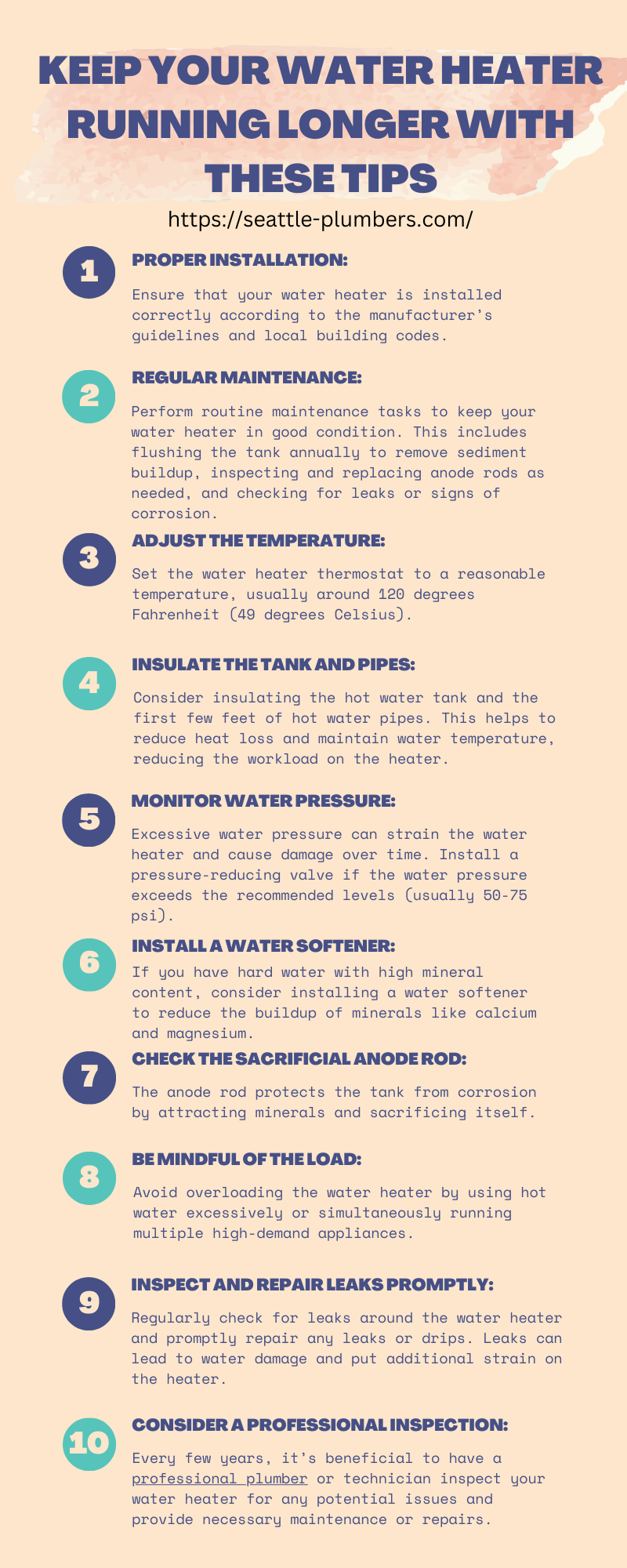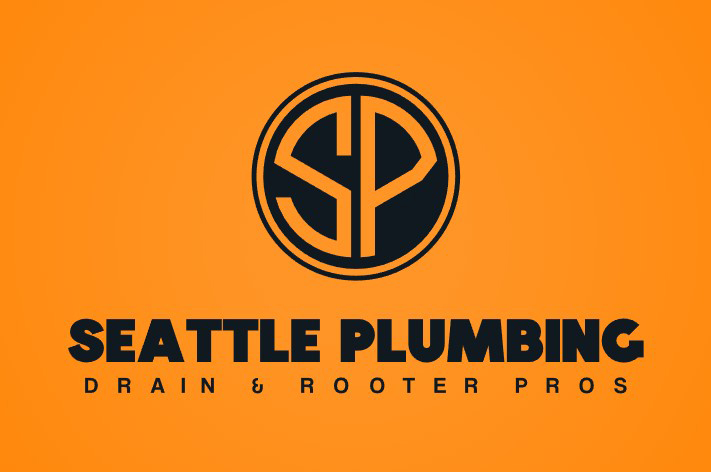Great Tips on Water Heater Replacement from Seattle Plumbing, Drain and Rooter Pros
The lifespan of a hot water heater can vary depending on factors such as the type of heater, the quality of installation, water quality, and maintenance. However, on average, a traditional tank-style hot water heater is expected to last between 8 and 12 years. Some may last longer with proper maintenance, while others may require replacement sooner.
It’s a good idea to monitor your hot water heater’s performance and be aware of any signs of deterioration or inefficiency. These signs can include reduced hot water supply, frequent repairs, leaks, strange noises, or rust-colored water. If you notice any of these issues or your hot water heater reaches its expected lifespan, it’s generally recommended to consider replacing it.
Additionally, newer models of hot water heaters, such as tankless or hybrid systems, tend to have longer lifespans. Tankless water heaters can last up to 20 years or more, while hybrid heat pump water heaters typically have a lifespan of around 10-15 years.
Ultimately, regular maintenance, awareness of signs of deterioration, and following manufacturer recommendations are crucial for maximizing the lifespan of your hot water heater and ensuring efficient and reliable performance. It’s advisable to consult a professional plumber or technician for a more accurate assessment and advice based on your specific circumstances.
Keep Your Water Heater Running Longer With These Tips

To extend the lifespan of your water heater and ensure its optimal performance, you can follow these tips:
- Proper installation: Ensure that your water heater is installed correctly according to the manufacturer’s guidelines and local building codes. Improper installation can lead to premature wear and tear.
- Regular maintenance: Perform routine maintenance tasks to keep your water heater in good condition. This includes flushing the tank annually to remove sediment buildup, inspecting and replacing anode rods as needed, and checking for leaks or signs of corrosion.
- Adjust the temperature: Set the water heater thermostat to a reasonable temperature, usually around 120 degrees Fahrenheit (49 degrees Celsius). Higher temperatures can accelerate mineral buildup and increase energy consumption.
- Insulate the tank and pipes: Consider insulating the hot water tank and the first few feet of hot water pipes. This helps to reduce heat loss and maintain water temperature, reducing the workload on the heater.
- Monitor water pressure: Excessive water pressure can strain the water heater and cause damage over time. Install a pressure-reducing valve if the water pressure exceeds the recommended levels (usually 50-75 psi).
- Install a water softener: If you have hard water with high mineral content, consider installing a water softener to reduce the buildup of minerals like calcium and magnesium. This can prevent sediment accumulation in the tank and prolong the water heater’s life.
- Check the sacrificial anode rod: The anode rod protects the tank from corrosion by attracting minerals and sacrificing itself. Inspect the anode rod regularly and replace it if it becomes heavily corroded or less than half an inch thick.
- Be mindful of the load: Avoid overloading the water heater by using hot water excessively or simultaneously running multiple high-demand appliances. This can strain the heater and reduce its lifespan.
- Inspect and repair leaks promptly: Regularly check for leaks around the water heater and promptly repair any leaks or drips. Leaks can lead to water damage and put additional strain on the heater.
- Consider a professional inspection: Every few years, it’s beneficial to have a professional plumber or technician inspect your water heater for any potential issues and provide necessary maintenance or repairs.
By following these guidelines, you can help maximize the lifespan of your water heater and ensure an efficient and reliable hot water supply.



